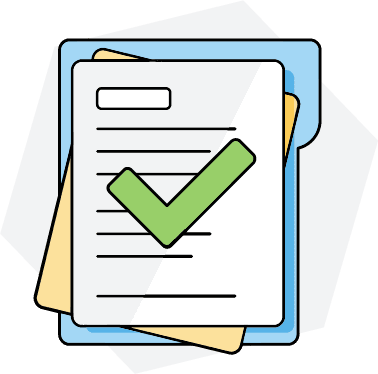In 2022, the IRS Criminal Investigation unit uncovered $5.7 billion in tax fraud and launched more than 1,300 tax investigations. Unfortunately, health insurance tax scams are a common form of fraud. Fraudsters trick victims into divulging information about their healthcare claims or insurance coverage, and then use this data to commit tax fraud and leave you holding the bill.
Here’s what you need to know about how health insurance tax scams work, how they can impact your life, and most importantly, how to avoid getting scammed.
Table of Contents
What Are Health Insurance Tax Scams?

Health insurance tax scammers want two things: money and information.
Scammers can trick you into paying by pretending you owe money. This happens when fraudsters call or email and claim they’re from the IRS collecting an unpaid debt or outstanding taxes. They may ask for untraceable currency such as Bitcoin or a gift card, or ask you to electronically transfer the money to an email address that looks legitimate but is actually fake.
Scammers can also trick you into providing them with personal information, such as your Social Security number, date of birth, address, and other details. They may claim they’re calling from your health insurance provider or on behalf of your employer. They might ask directly for personal information or ask you to update your account details using a data-mining webpage. The scammers then use this data to file fraudulent tax returns or open credit card accounts in your name, and it may take months or years before the issue comes to light.
8 Tips to Help Avoid Health Insurance Tax Scams
While it may feel daunting knowing that there are criminals looking to prey on unsuspecting victims through health insurance tax scams, you can protect yourself and your loved ones by staying aware. Here are 8 tips to help you avoid health insurance tax scams.
1. Know How the IRS Contacts Taxpayers
If you owe a refund, the IRS first contacts you by mail. The agency does not make phone calls to taxpayers asking them to pay outstanding amounts. While the IRS may contact you by phone, agents will identify themselves immediately and state the purpose of their call.
In addition, the IRS does not ask you to make payments or update your personal details via email. While you might receive emails about upcoming tax deadlines, they will not ask you to take specific action.
2. Ask for Proof

If you’re unsure who you’re talking to is who they say they are, ask for proof. If their first response is to get angry or defensive, they’re likely a scammer. They are probably attempting to commit fraud if they cannot provide details or provide contradictory information. Real employees of the IRS or your health insurer should have no problem providing proof of their identity.
3. Scrutinize the Sender’s Email Address
Scammers are getting better at creating fake email messages that look legitimate. If you’re not sure, examine the email address. Look for spelling mistakes or the use of special characters, and pay special attention to what comes after the “@” symbol. All federal government agencies use email addresses that end in “.gov” — if you see anything else, the email is not legitimate.
4. Watch for “Urgent” Messages
One popular scam technique is using urgency to compel action. For example, emails might contain words such as “URGENT”, “DO NOW”, or “IMMEDIATE ACTION REQUIRED”, often in capital letters and bold fonts. The goal is to make you worry and think that if you don’t act immediately, there will be consequences. However, the IRS will not send emails with that type of message.
5. Assess the Caller’s Real Identity
Scammers may spoof legitimate phone numbers, which means your caller ID may say it’s coming from the IRS or another governmental agency even though it is a scam.
The first sign that something is not right is if they start immediately asking personal questions. The second red flag is if they ask for immediate action. If they tell you to pay immediately or risk punishment, hang up the call. Then call the agency phone number listed on the official government website — not the number on your caller ID — and ask them to confirm the details of your call.
6. Look out for Generic Greetings

Any legitimate business or agency likely already has some information about you, such as your full name. This means if you see generic email greetings such as “Dear taxpayer,” “Dear customer,” or “Dear recipient,” it’s likely a scam.
7. Think Beyond the IRS
Scammers do not only mimic the IRS. They may also pretend to be your insurance provider, someone from Medicare, your employer, or a state collections agency. Even if the call or email seems legitimate, always ask for proof. Credible agents and representatives are prepared to provide proof when requested.
8. Never Click the Link
Email scams that ask you to make immediate payments or reset your account details share a common characteristic: There’s a link for you to click.
To protect yourself from scams, do not click on the link. If it seems legitimate, you should be able to find the same link on the agency or company’s official website.
Skip the Scam: Err on the Side of Caution
You can avoid the vast majority of scams by being extra cautious with your personal health care data and insurance information. Remember who you have reached out to and who you have not.
For example, if you have requested information about health insurance options, legitimate agents and representatives will contact you. However, if you have never requested anything like that, then you should not receive those types of calls.
Overall, it can save you money and time to take precautions to make sure you’re not being scammed.
